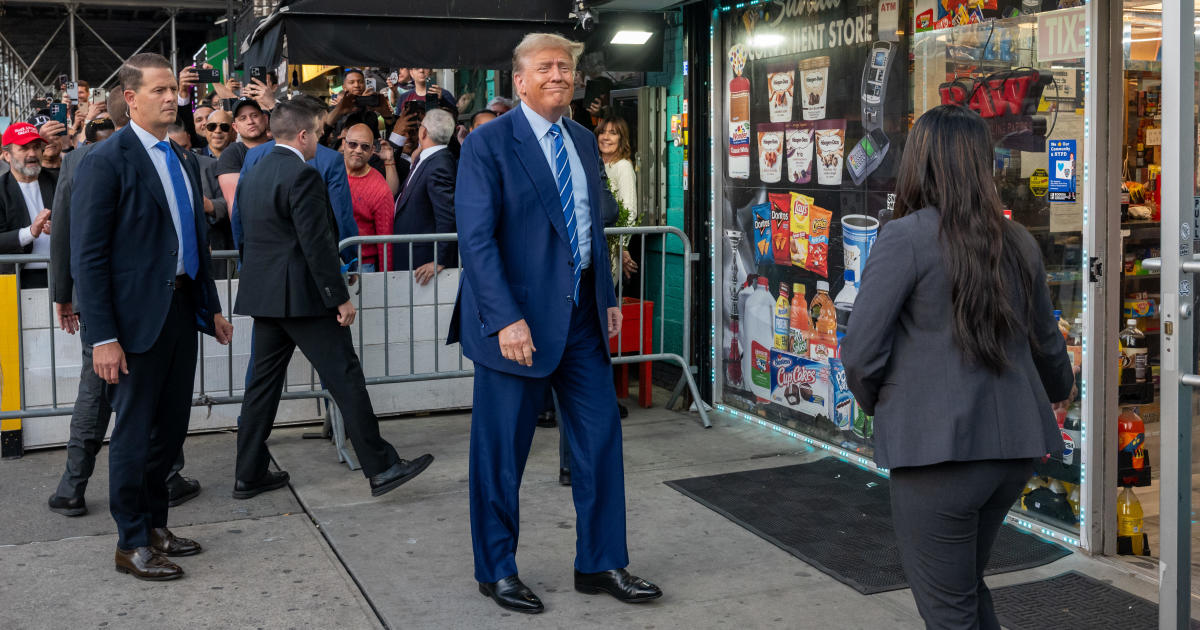Share Prices Drop On Wall Street On Last Day Of Rip-Roaring 2017
NEW YORK (CBSNewYork/CBS News/AP) -- U.S. stock indexes ended a boffo year with a wheeze on Friday, as share prices ended lower on 2017's final day of trading.
Volume was light ahead of the New Year's holiday.
Losses by technology and financial companies outweighed gains by consumer products makers and industrials stocks. Oil prices ended higher, with West Texas Intermediate closing above $60 a barrel for the first time since mid-2015.
The market dip on light trading likely reflects some investors opting to pocket gains ahead of the New Year's Day holiday, said J.J. Kinahan, chief market strategist at TD Ameritrade. "I'm thinking there's a little bit of profit-taking as we get into the year-end and people start thinking about where to establish new positions," he said.
Despite the market's slide on Friday, which notched most of its decline in the final half-hour, stocks closed the year with strong gains.
The Dow Jones industrial average ended the day down 118 points, or 0.5 percent, to 24,719. For the year, the blue-chip 30-stock index gained a roaring 25.2 percent.
The S&P 500 index dropped 14 points on Friday, or 0.5 percent, to 2,673. For the year, the broad market benchmark soared 19.4 percent, giving the S&P 500 its best year since 2013.
The NASDAQ composite fell 47 points on the day, or 0.7 percent, to 6,903. The tech-heavy index posted a robust 28.2 percent gain for the year.
And the Russell 2000 index of smaller-company stocks gave up 13 points on Friday, or 0.9 percent, to close at 1,536. For the year, it climbed 13.2 percent.
"This would go in the category of stellar year, with very little volatility in the market and pullbacks that were essentially minor," said Quincy Krosby, chief market strategist at Prudential Financial, earlier this week.
Several factors kept the market on an upward grind for most of the year and repeatedly drove stock indexes to all-time highs: The global economy rebounded, while the U.S. economy and job market continued to strengthen, which helped drive strong corporate earnings growth.
The outsize results for 2017 have investors wondering if 2018 can come close to repeating that performance. One positive sign is the massive tax overhaul President Donald Trump just signed into law, with its signature feature: slashing the U.S. corporate tax rate.
"Indeed, the reduction of the corporate tax rate from 35 percent to 21 percent, combined with businesses' ability to fully expense their capital expenditures for the next five years, are powerful tailwinds for profits, which have already enjoyed a renaissance in 2017, powered by improved domestic and global demand," said John Lynch, chief investment strategist for LPL Financial. "We believe this will help elongate the expansion, which has thus far been powered by the U.S. consumer."
However, on Friday, Goldman Sachs Group shares declined after the investment bank said the newly passed tax law will reduce its 2017 earnings by about $5 billion. The stock slipped $1.74, or 0.7 percent, to close at $254.76. Other big banks were down as part of a broader slide in financial stocks.
Still, the giant investment bank's analysts are bullish on the impact of corporate tax cuts. "We maintain our S&P 500 EPS estimate of $150 in 2018, representing 14 percent growth vs. 2017. Of that total, we estimate that tax reform will contribute 5 percentage points, or $7 per share. This would represent a decline in the aggregate S&P 500 effective tax rate from 26 percent today to roughly 22 percent, inclusive of federal, state, and local taxes," the analysts wrote in a recent report.
Benchmark U.S. crude ended the day with a 45 cent rise, or 0.8 percent, to close at $60.29 per barrel on the New York Mercantile Exchange. Brent crude, which is used to price international oils, gained 52 cents, or 0.8 percent, to $66.68 per barrel in London. The price of natural gas continued to rise in response to the harsh winter weather gripping a large swath of the U.S. It gained 5 cents, or 1.6 percent, to $2.96 per 1,000 cubic feet.
"Just like stocks right now, the [energy] futures have a pretty light volume," Kinahan said. "We need some real volumes for people to say, 'OK, this is real." Despite the big gain in oil and gas prices, energy stocks were mixed.
The outsize results for 2017 have investors wondering if 2018 can come close to repeating that performance.
Corporate economist Robert Frick told CBS2 on Thursday that by all indications, we can expect this strong economy to continue through 2018.
"The unemployment rate is so low. The number of jobs per household is going up, so household income is up, a lot of people are spending. They feel confident," Frick said.
Another reason to feel confident is that interest rates are also expected to rise this new year.
"Which means that savers, who have been kind of plagued by low interest rates on their CDs and their money markets and their savings accounts -- now all of a sudden, they're going to start getting better rates," Frick said Thursday.
Meanwhile, one positive sign is the massive tax overhaul President Donald Trump just signed into law, with its signature feature: slashing the U.S. corporate tax rate.
"Indeed, the reduction of the corporate tax rate from 35 percent to 21 percent, combined with businesses' ability to fully expense their capital expenditures for the next five years, are powerful tailwinds for profits, which have already enjoyed a renaissance in 2017, powered by improved domestic and global demand," said John Lynch, chief investment strategist for LPL Financial. "We believe this will help elongate the expansion, which has thus far been powered by the U.S. consumer."
However, on Friday, Goldman Sachs Group shares declined after the investment bank said the newly passed tax law will reduce its 2017 earnings by about $5 billion. The stock slipped $1.74, or 0.7 percent, to close at $254.76. Other big banks were down as part of a broader slide in financial stocks.
Still, the giant investment bank's analysts are bullish on the impact of corporate tax cuts. "We maintain our S&P 500 EPS estimate of $150 in 2018, representing 14 percent growth vs. 2017. Of that total, we estimate that tax reform will contribute 5 percentage points, or $7 per share. This would represent a decline in the aggregate S&P 500 effective tax rate from 26 percent today to roughly 22 percent, inclusive of federal, state, and local taxes," the analysts wrote in a recent report.
Benchmark U.S. crude ended the day with a 45 cent rise, or 0.8 percent, to close at $60.29 per barrel on the New York Mercantile Exchange. Brent crude, which is used to price international oils, gained 52 cents, or 0.8 percent, to $66.68 per barrel in London. The price of natural gas continued to rise in response to the harsh winter weather gripping a large swath of the U.S. It gained 5 cents, or 1.6 percent, to $2.96 per 1,000 cubic feet.
"Just like stocks right now, the [energy] futures have a pretty light volume," Kinahan said. "We need some real volumes for people to say, 'OK, this is real." Despite the big gain in oil and gas prices, energy stocks were mixed.
(© Copyright 2017 CBS Broadcasting Inc. All Rights Reserved. The Associated Press contributed to this report.)



